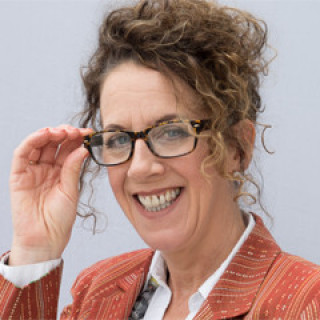The Future of Coaching
“Predicting the future of work will not be about the technology but about us”
– Dr Nicola Millard, Principal Innovation Partner at BT.
The EMCC conference this year contained themes of change, innovation, and collaboration, so same old, same old.........but the lunch was certainly unique! (more on that later).
So, the future of work……………. surely it must be digital? The technological revolution in this VUCA world?
Dr. Millard is a Global Innovator for BT she should know a thing or two about what the future of work looks like. So, are all coaches going to lose their jobs and be replaced by robots in the next 30 years?
Unlikely she says. Productivity is still what business is about and digital should improve our lives and not just be a means to an end.
Never mind Artificial Intelligence, Dr. Millard prefers Augmented Intelligence which will aid and not replace the core skills of coaches. Robots are still not great at empathy, listening or even complex decision making. Although the sound of holograms is exciting…... maybe I can send my avatar along to meet a client for coaching? Although always being “techno connected” (always on) seems to be a greater challenge for us and our clients currently.
In the introduction, we were encouraged to imagine and map out a vision of a world where coaching has helped to alleviate climate change by 2050, although most coaches on the surrounding tables reflected on not being coaches by then!
Diane Newell in her session, asked us to consider our own personal responses to change and how we help clients make those all-important shifts…… “if you are coming to coaching and don’t want to change, then why are you here?” The session was light on new ideas around change and the links to the overall themes of the conference were tentative.
In Peter Duffell’s workshop, we were given a fascinating insight into generational differences. The consensus in the room was that there may be less difference between Generation Alpha, Y, X, Millennial and Baby Boomers than we might imagine.
However, as supervisors, we would do well to consider the implication of when we are closer in age to our supervisee, or when our supervisee is closer in age to their client and not to us. What are the influences on perspective and bias?
We all have a choice about whether we want to work with the client at different stages of the generational spectrum. Clients who want more immediate access to coaches, meeting up virtually or in “alternative” environments may not be a function of generational differences but rather difference ns people’s personality preferences. It was ever thus.
More time to discuss transference and countertransference and the ethical sensitives about working across generations may have added to a richer picture.
The emphasis on how much the world has changed in 40 years ( Executive Coaching didn’t even exist when I was at University!) suggests that it is almost impossible to say what will happen in the next 40 years especially for the huge numbers of 20-year-olds expected to live to 100, and the continuing climate crisis.
The only real light at the end of the tunnel is that if a “futurologist” at BT is saying that people still want and need face to face conversations in order to collaborate and create effectively, then coaching will still have a place to facilitate those crucial conversations.
And the unique lunch……………well check out the photo here…………………the future of lunch is box-shaped!
Julia Menaul
Executive Coach & Supervisor
Board Director Association of Coaching Supervisors
27th January 2020
www.sparkcoachingandtraining.co.uk
Share this article

Accredited Coaching Supervisor

Author: Christoffel Sneijders

Author: Sylviane Cannio, MCC, MP, ESIA

Author: Michelle Lucas
Online Community
Become part of our online family. Connecting and empowering each other to succeed. We want to give supervision wider exposure and a larger 'share of voice' in the coaching community. Come and join us!